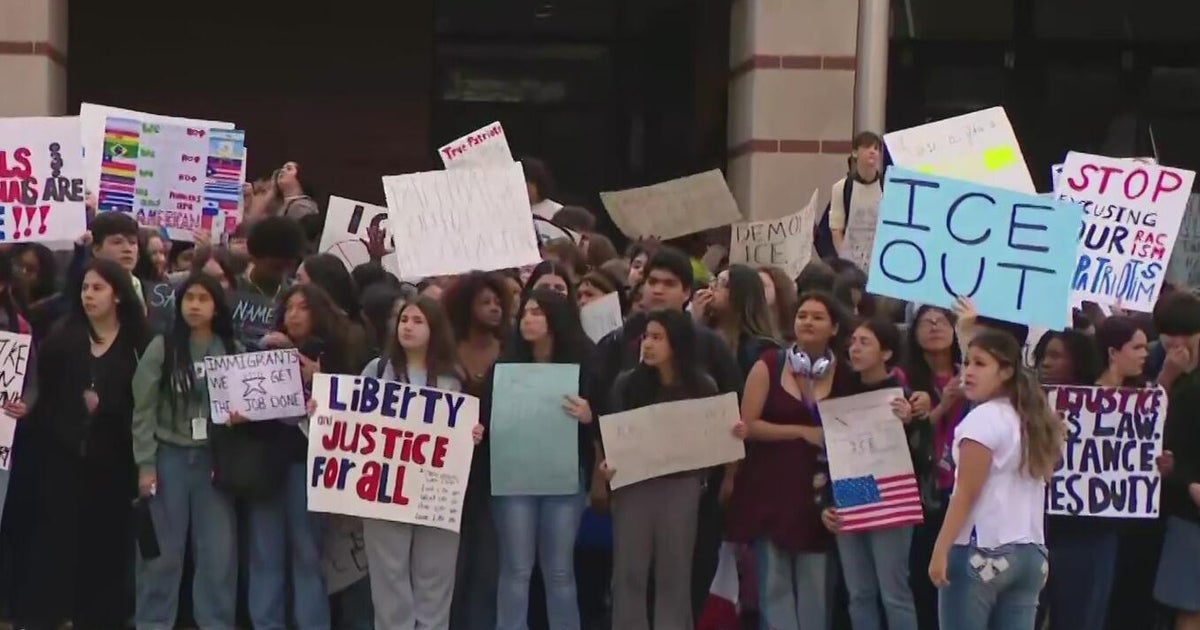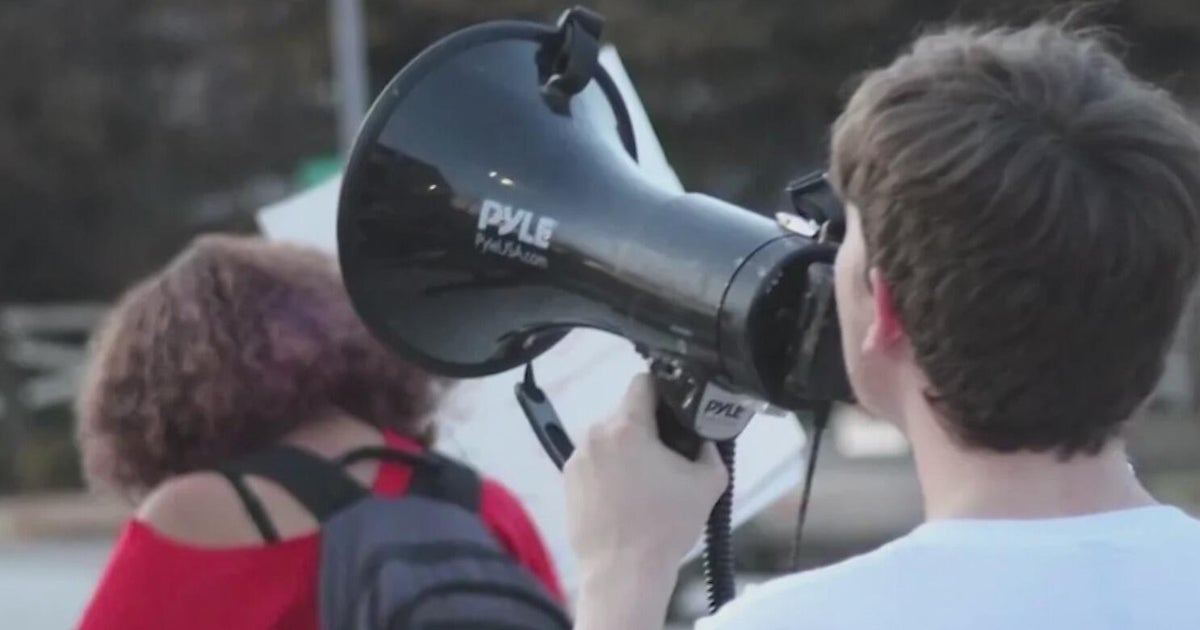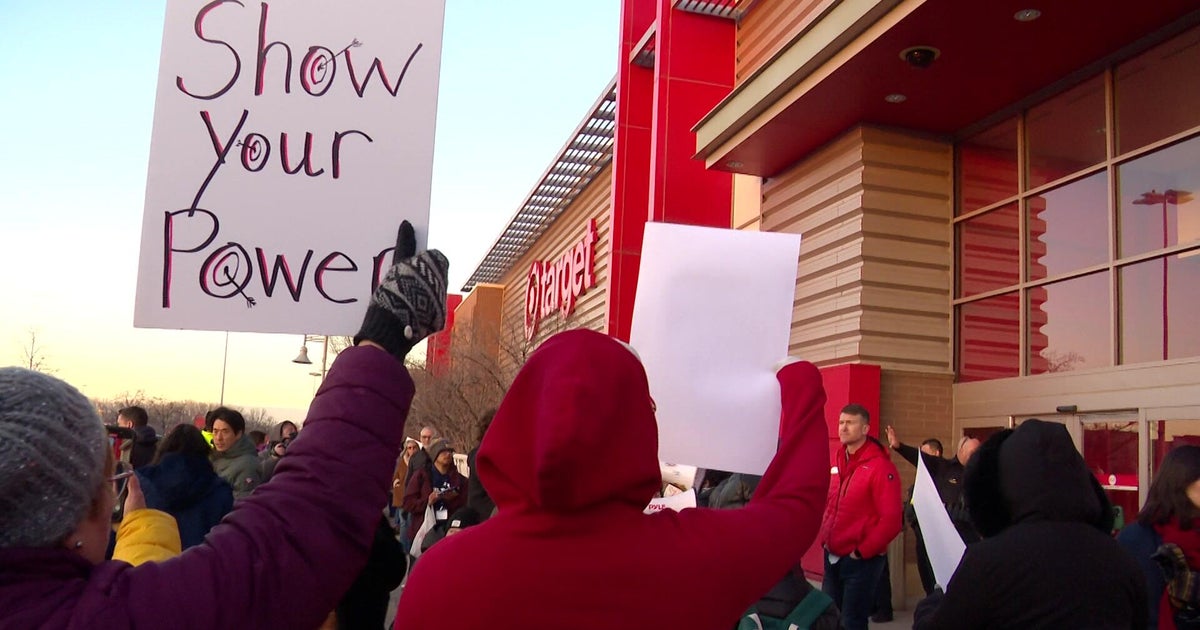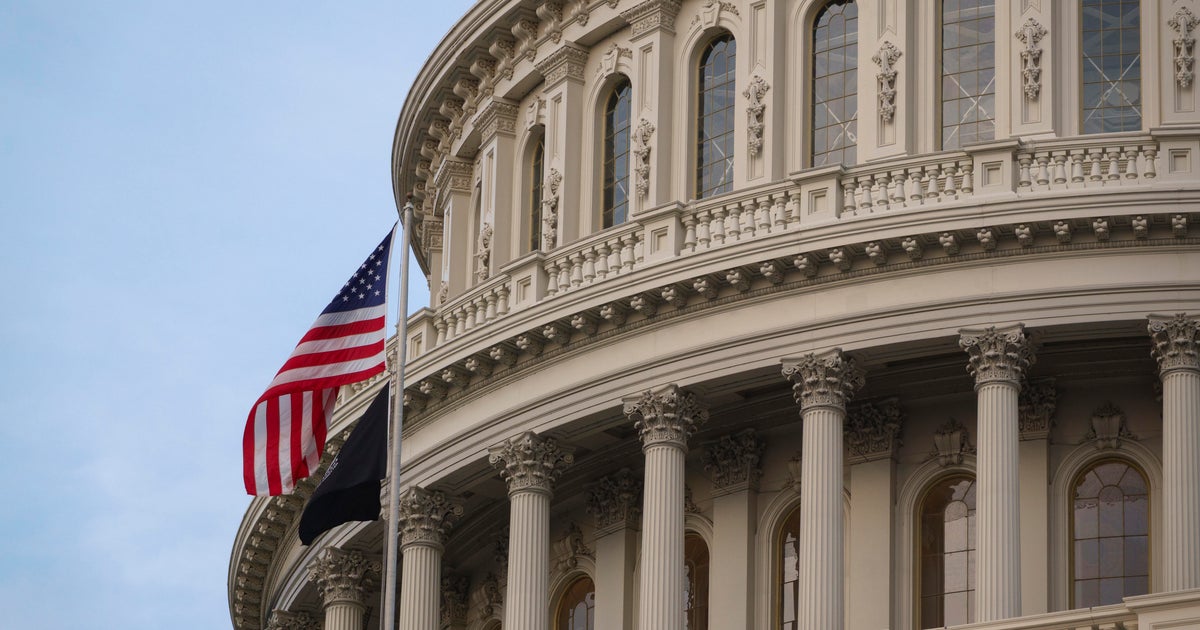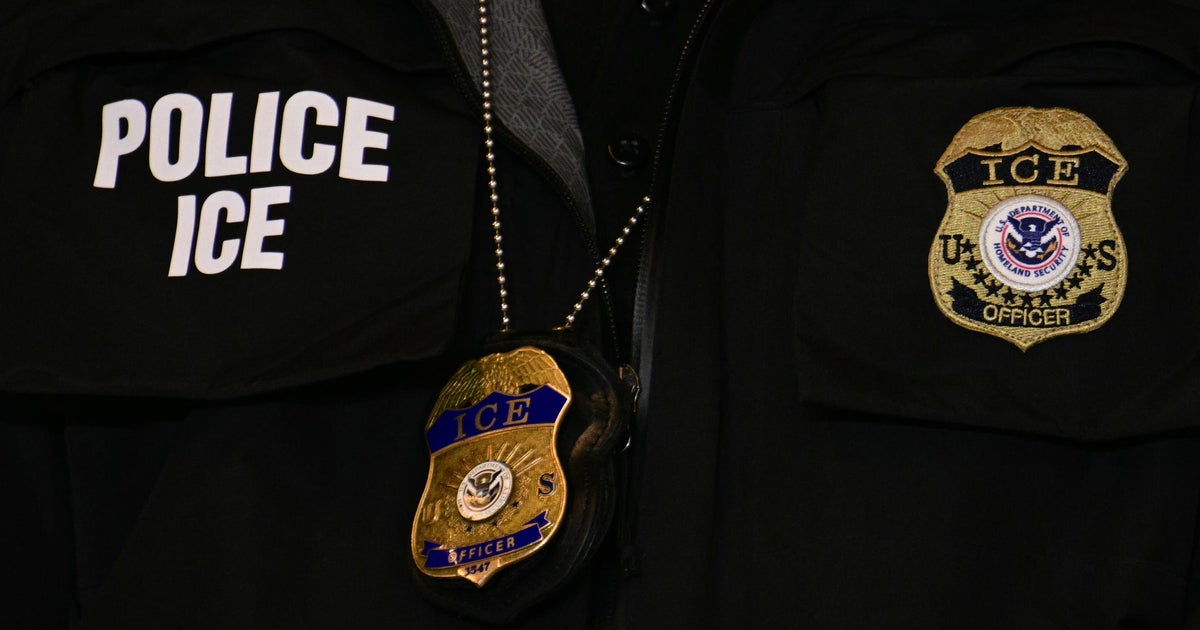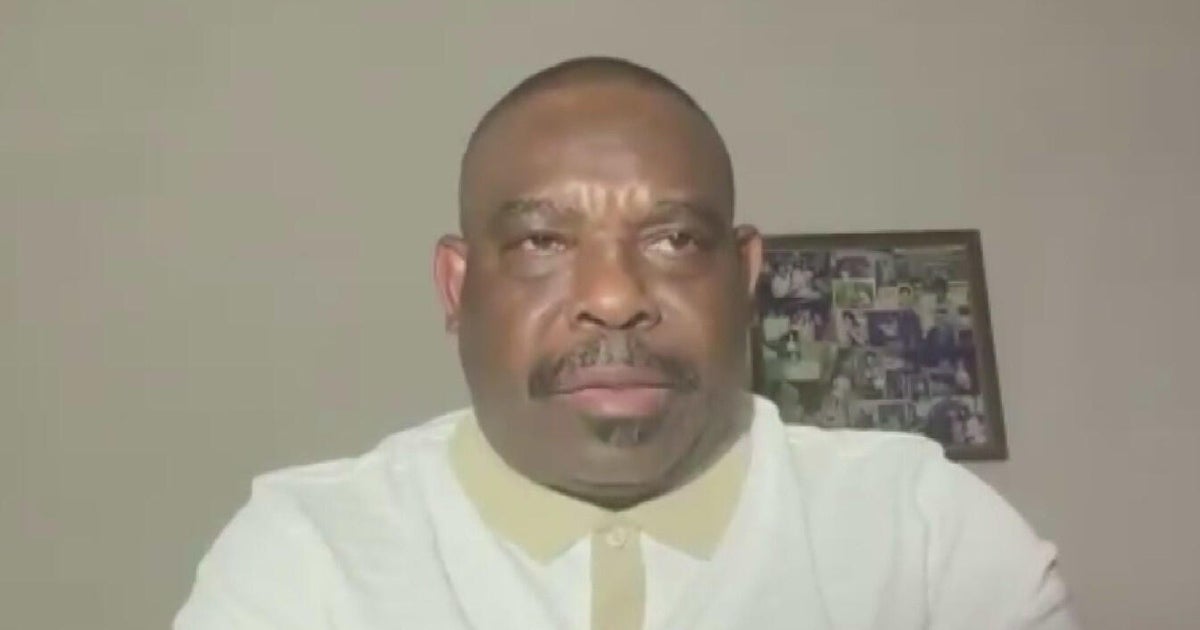ICE is demanding data from Illinois abortion clinics, restaurants, schools and more using obscure legal tool
CHICAGO (CBS) -- The U.S. Immigration and Customs Enforcement (ICE) is using an obscure legal tool to demand data from organizations in Illinois, and it's happened thousands of times over the last few years.
From schools to abortion clinics to state agencies, ICE agents are frequently using an administrative subpoena, also known as a 1509 summons, in questionable ways to seek records and information.
This type of subpoena does not require a judge's approval. It's typically used for investigations related to customs fees, duties and importing goods, according to federal rules. But when WIRED's Dhruv Mehrotra first got his hands on a database from ICE through a Freedom of Information Act request, it showed widespread use. Agents utilized this tool to demand information from companies nationwide more than 172,000 times from 2016 to mid-August 2022, the outlet reported.
"While these administrative subpoenas… are meant to be used only in criminal investigations about illegal imports or unpaid customs duties, WIRED found that the agency has deployed them to seek records that seemingly have little or nothing to do with customs violations," Mehrotra wrote when he broke the story in April.
CBS 2 obtained a copy of the database from WIRED. Our analysis found many of those companies that ICE targeted are in Illinois, and some experts said it could be illegal.
ICE agents used the 1509 summons to demand records from Illinois entities more than 3,700 times since 2016, with the majority in Chicago, the database shows. That includes internet companies, grocery stores, banks, and restaurant chains. Several hotels and retail stores were also issued named in the data.
In addition, ICE demanded information from a west suburban elementary school, several universities, and a major abortion provider.
"The concern is that the government is overstepping its authority, and in violation of the Fourth Amendment," said Jacqueline Stevens, professor at Northwestern University and founding faculty director of the Deportation Research Clinic.
'A fishing expedition'
These kinds of subpoenas were created so the federal government can investigate specific customs-related crimes, not so agents can "just go on a fishing expedition," said Ed Yohnka, communications director with the American Civil Liberties Union of Illinois.
But we found ICE's use of this tool is not only widespread – it ramped up over the last several years, both nationwide and in Illinois.
In 2016, ICE issued nearly 18,000 subpoenas across the country. By 2021, that more than doubled to over 36,000.
And in Illinois, ICE issued 161 of these subpoenas back in 2016. In 2020 alone, the agency sent out 1,253 subpoenas in the state – a 700 percent increase.
The database CBS 2 obtained and analyzed contains limited information. It's impossible to determine from the spreadsheet alone what specific records ICE was seeking in each instance and why.
To learn more, CBS 2 filed several Freedom of Information Act (FOIA) requests as well as requested information from many of the public agencies that received summonses. Few responded. Some who did could not locate copies of the subpoenas. But others who could, shared some records or information – which only provided a glimpse into what ICE is asking for.
For instance, ICE agents demanded information from state agencies like the Illinois State Toll Highway Authority. That agency was summoned three times in 2021, the data shows. Copies of the subpoenas obtained by CBS 2 reveal ICE asked for data on drivers and vehicles, including toll information, photos of cars, and I-PASS information for an account holder.
"You're literally looking at people's travel activity, and boy, if I know where someone travels and where they go, I know a lot about them," Yohnka said.
Read the records we obtained through FOIA below:
Tollway 1509s by Adam Harrington on Scribd
In 2019, ICE demanded video from a major abortion provider. The video captured a person running through a parking lot, the provider said.
"What is the nexus between the records of any of those individuals and an importation crime?" Yohnka said. "What's the nexus to importation – to an illegal importation – that's justifying any of this?"
Lack of oversight
Law enforcement can obtain similar information using other legal tools like search warrants, but that involves approval by a judge based on certain evidence. 1509s do not.
Legal experts worry this can open the door to potential abuse by ICE, allowing them to circumvent existing legal methods overseen by courts to obtain information.
"There's no judicial oversight, which is problematic," said Anthony Volini, professor of legal practice with DePaul University.
And while it's unclear how often agencies complied with the 1509s they received from ICE, Volini said it's likely many decided to turn over the information. The major abortion provider told CBS 2 it complied with the subpoena it received for the video.
"You think about it – an organization receiving a 1509 subpoena from a powerful government agency," Volini said. "It's a lot easier to just give the information rather than try to go to court and fight it. It takes a lot of time and effort and money."
This isn't the first time the federal government's use of 1509 subpoenas was called into question. In 2017, Customs and Border Protection (CBP) sent a 1509 summons to Twitter in an attempt to reveal the identity of an anonymous account. Twitter sued, and the summons was withdrawn the next day, VICE reported. Twitter then dropped the lawsuit.
But the incident prompted an Office of the Inspector General Investigation into CPB's broader use of 1509s. Specifically, the investigation zeroed in on 1509s issued between January 2015 and May of 2017. During this timeframe, the Inspector General determined the CBP violated its own policy 20 percent of the time.
"It's a big number of records and requests that could possibly be done in an abusive way," Yohnka said.
Read the Office of the Inspector General report here:
oig-18-18-nov17 by Adam Harrington on Scribd
"If you've seen past abuse of this and then you see a ramp-up in the use of this particular tool, I think it's reasonable to assume that A, there is some abuse, some level of abuse that is going on, and B… did the agency ever get the message from the previous investigation and understand that this is not the kind of tool they should just be using on sort of a willy-nilly basis?" Yohnka continued.
The impact
What happens to the records once they're obtained is concerning to Stevens, too. She questions how information improperly gathered by ICE using 1509s can be used in court proceedings.
"My biggest concern about the use of these subpoenas is that it collects information that allows law enforcement to make improper and abusive use in selective and targeted prosecutions, especially against whistleblowers or political critics of the government," Stevens said.
"A number of scholars and researchers have described efforts by Homeland Security and federal law enforcement, more generally, to tie together large databases including from the private sector," she said. "So we don't know exactly what is in these specific requests, and how broad they are. Are they just for individual records? Even if they are just for individual records, if you issue these in the tens of thousands, then you're going to get a substantial database."
The use and potential abuse of 1509s can also create a chilling effect for those seeking services from organizations who've received these subpoenas, said Craig Mousin, law professor at DePaul University.
"If people are not accessing resources, if I have a medical problem and I can't go to a health clinic because I know that ICE or CBP is pulling all the data of who comes into their parking lot, our society is less healthy if people are walking around afraid," said Mousin, who also founded the National Immigrant Justice Center to provide legal assistance to refugees.
Illinois is also a sanctuary state, which bars cooperation with immigration officials unless a federal judge has issued a warrant for an arrest.
"Has the governor's office specifically instructed particular agencies what to do if they receive these kinds of subpoenas?" Stevens said. "[Does the Attorney General] support these agencies responding, acquiescing to the ICE subpoenas without going to court or questioning the authority behind the subpoenas?"
CBS 2 contacted the governor's office and the AG's office but they did not answer our questions.
CBS 2 also contacted ICE with the following questions:
- If 1509s are meant for customs violations/investigations, can you explain the nexus to video of a man running through a parking lot requested from a major abortion provider in Illinois, or the connection to video of a group of cars requested of Illinois State Toll Highway Authority?
- Is there a system of checks and balances within ICE to make sure that these subpoenas are being issued within the agency's legal authority?
- In light of the fact that Illinois is considered a "sanctuary state," why were 1509 summonses issued to Illinois state agencies?
A Homeland Security Investigations (HSI) spokesperson said the Office of Inspector General independently and regularly audits programs and operations, including the use of 1509s. HSI did not answer the specific questions about subpoenas issued in Illinois. The spokesperson sent a general statement to CBS 2:
"Homeland Security Investigations (HSI) investigates, disrupts, and dismantles terrorist, transnational, and other criminal organizations that threaten or seek to exploit U.S. customs and immigration laws. HSI has broad legal authority to conduct federal criminal investigations of the illegal cross-border movement of people, goods, money, technology, and other contraband into, out of, and throughout the United States. HSI uses these authorities to investigate a wide array of transnational crime and violations of customs and immigration laws, including cybercrime; child exploitation; financial fraud and scams; human rights violations and war crimes; human smuggling and trafficking; identity and benefit fraud; illegal exports of controlled technology and weapons; intellectual property theft and trade fraud; money laundering; narcotics smuggling; terrorism and national security threats; and transnational gang activity."
Experts called for stronger levels of oversight into the use of 1509s, because Volini said, "unchecked surveillance power by a government agency is a problem."
"If I'm looking for a few bad apples, I basically take this large net and I drag it over all of society just looking for a few bad apples, and I'm scooping up all the good apples in the process and violating privacy rights of millions of Americans, and that's problematic," he said.
"They should be following the Fourth Amendment," Stevens added. "And they should be staying within the lanes of what their legal authority is under the bureaucratic organization charts of the U.S. government."
